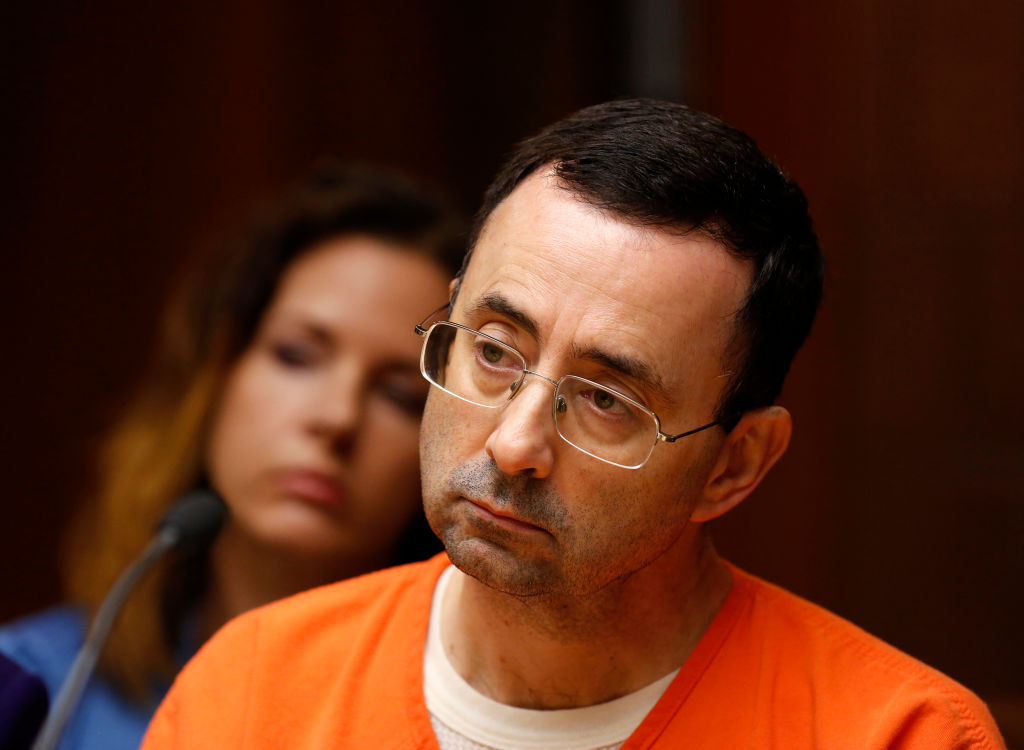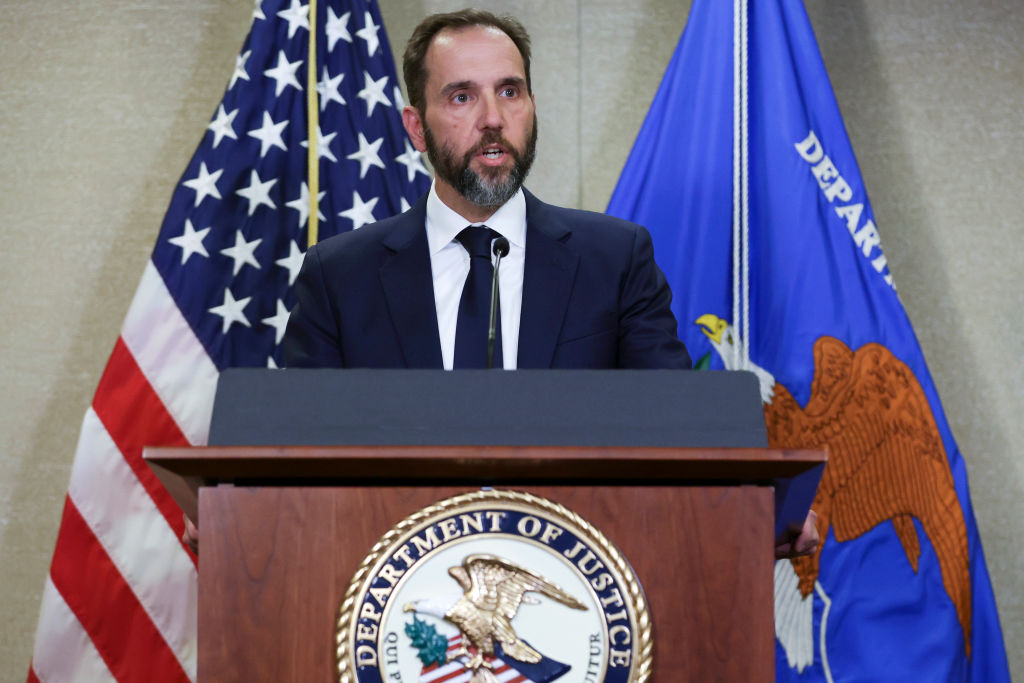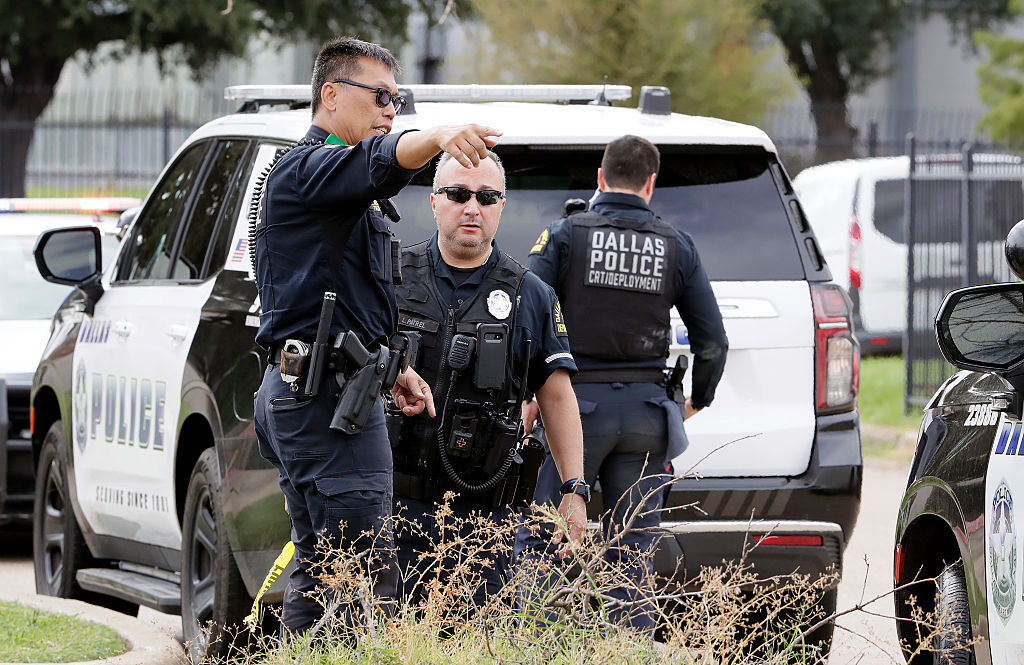The Department of Justice’s inspector general, Michael Horowitz, issued a damning report Thursday concerning the FBI’s handling of child sex abuse cases. This report comes three years after one which documented a lapsed culture at the Bureau. In the current review, the IG looked at 327 cases and found that the FBI was slow to respond to reports of child sex abuse, failed to follow up on leads and failed to advise other agencies. The report cited a case where no investigative activity was recorded for over a year, while the subject went on to abuse another child. Some cases were so concerning that the IG team in the middle of their review referred forty-two of them to the FBI for immediate attention.
The previous IG report, issued on July 14, 2021, focused on the FBI’s mishandling of the allegations against Dr. Lawrence Gerard Nassar, the physician for both US Women’s Gymnastics and Michigan State University’s Gymnastics. He sexually abused of hundreds of young women and girls. The truly heartbreaking aspect of that report was the Bureau’s lack of care or concern for the victims, which allowed Nassar’s depredations to continue.
The IG found that the FBI’s Indianapolis office failed to respond to the allegations, made fundamental errors when it finally did respond, failed to notify the appropriate field office (the FBI’s Lansing Michigan Resident Agency, located near the campus of Michigan State University and Dr. Nassar’s residence) and failed to notify state and local authorities. After eight months of inactivity by the Indianapolis office, the FBI’s Los Angeles office received similar information. The IG found the Los Angeles office also failed to take action to notify the appropriate field office or state and local authorities.
The FBI’s Lansing Michigan Resident Agency only become aware of the allegations about Nassar when Michigan State University police acted. They’d received similar complaints about Nassar, which led them to search his residence, where they discovered child pornography.
At that point, over a year had passed since complaints were first made to the FBI, and Nassar had continued to “treat” gymnasts at Michigan State University, a high school in Michigan and a gymnastics club in Michigan. The Michigan investigation found that Nassar had sexually assaulted hundreds of victims and possessed thousands of items of child porn. He was convicted in both federal and state courts and is currently imprisoned on a federal sentence of sixty years — the statutory maximum — for child pornography violations. His two state sentences, over 100 years each, for child abuse are to be served consecutively. A de facto life sentence.
In the IG’s review of the FBI’s handling of the Nassar matter, the lack of attention or concern by the management of the Indianapolis office is stunning. Crimes against children are supposed to be an FBI investigative priority. A decades-long undercover operation code-named “Innocence Images” focuses on crimes involving the sexual exploitation of minors. Interstate travel for purposes of sex with a minor is a federal crime as any FBI Agent should know.
The IG specifically cited the FBI Indianapolis interview of a gymnast on September 2, 2015, in which she told of sexual assault by Nassar. That interview wasn’t documented until February 2017. Violating the five-day rule: the results of an interview must be memorialized on form FD-302 within five days. Thursday’s IG report also repeatedly cites examples of investigative activity not being recorded in the case files.
Both a Supervisory Special Agent, or SSA, and the Special Agent in Charge, or SAC, were cited for their “false statements” in the Nassar case. The IG reported that the victim interview summary, which the SSA drafted seventeen months after the interview, contained materially false statements and omitted material information. The IG also charged that when questioned, the same SSA twice made manifestly false statements to the IG’s team. In addition, the IG found that the SAC made materially false statements about the Indianapolis investigation during his interview with the IG team.
Perhaps most tragic of all was the IG’s assertion that at least seventy more athletes were subject to abuse in the time that elapsed between the initial complaint to the FBI and Nassar’s arrest by state authorities. IG Horowitz concluded that in the Nassar case, “Numerous FBI policies were violated.” The rules are there, the problem lies with the attitude and culture.
This harshly critical IG report on the FBI’s handling of the Nassar case quickly led to media coverage of the heartbreaking abuse suffered by the gymnasts. Some of the victims spoke out publicly about what they had suffered. This led, in turn, to congressional hearings.
The Senate Judiciary Committee held a hearing on Wednesday September 15, 2021. Gymnasts gave highly emotional testimony about the abuse they endured from Nassar. The gymnast who first reported Nassar’s crimes to the FBI testified, “this conduct by these FBI agents… who are expected to protect the public is unacceptable, disgusting and shameful.” FBI director Christopher A. Wray testified at the same hearing. The initial bungling of the Nassar case had occurred under the troubled tenure of his predecessor, James Comey, but it was now Wray’s mess to clean-up. He testified that two of the offending agents no longer worked at the FBI, and they were “not representative” of the Bureau’s work. He offered variations of “the bad apples are gone” theme numerous times in response to senators’ questions. But it was becoming clear that what was ailing the FBI couldn’t be solved by a few more firings. The culture itself must change.
Thursday’s IG report — three years after the initial Nassar report — indicates that nothing has changed. A new administration will likely appoint a new director. A necessary change. But one person can’t do it all. Many former agents and other honest people are willing to help the new director restore the FBI’s culture.


























Leave a Reply